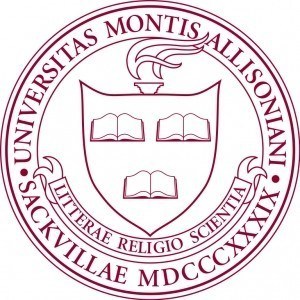Photos of university / #mountallison
The Bachelor of Arts in Economics at Mount Allison University offers students a comprehensive understanding of economic theories, principles, and the functioning of economies at both national and global levels. This program is designed to equip students with analytical skills necessary to interpret complex economic data, understand economic policies, and evaluate their impacts on society. Through a rigorous curriculum, students explore a broad range of topics including microeconomics, macroeconomics, international economics, monetary and fiscal policy, and economic development.
The Economics program emphasizes critical thinking, quantitative analysis, and effective communication, preparing graduates for various career paths in public policy, finance, business, research, and further academic pursuits. Students have opportunities to engage in hands-on learning through case studies, simulations, and research projects, fostering real-world applications of economic concepts. The program also encourages exploration of interdisciplinary subjects such as political science, mathematics, and environmental studies, providing a well-rounded educational experience.
Mount Allison’s small class sizes and dedicated faculty provide an engaging learning environment, where students receive personalized attention and mentorship. The university promotes experiential learning through internships, co-op placements, and community-based projects, enabling students to gain valuable professional experience before graduation. The program aims to develop quantitative skills through coursework in statistics and mathematics, complementing theoretical knowledge with practical abilities in data analysis and economic modeling.
Graduates of the Bachelor of Arts in Economics program are well-prepared to pursue advanced degrees or enter the workforce in diverse sectors including government agencies, financial institutions, consulting firms, non-profit organizations, and international organizations. The program’s emphasis on critical analysis, problem-solving, and effective communication ensures that students are equipped to succeed in dynamic and competitive environments. With a strong foundation in economic theory and practical skills, alumni are positioned to contribute meaningfully to economic policy-making, business strategy, and societal development.
The Bachelor of Arts in Economics at Mount Allison University offers students a comprehensive understanding of economic principles, theories, and their applications in real-world scenarios. The program is designed to develop students’ analytical, quantitative, and critical thinking skills, preparing them for diverse careers in finance, government, private enterprise, or further academic study. Throughout the program, students explore macroeconomic and microeconomic concepts, gaining insights into national and global economic systems, market behaviors, and policy implications. The curriculum includes courses in economic theory, econometrics, international economics, development economics, and public policy, providing a well-rounded foundation in both theoretical frameworks and practical analysis. Students also have opportunities to enhance their research abilities through dedicated research projects and data analysis courses. The program emphasizes the importance of quantitative skills, encouraging proficiency in statistical methods and data interpretation, which are crucial for evidence-based decision-making. Moreover, students are encouraged to develop their communication skills, enabling them to articulate complex economic ideas clearly and persuasively. Mount Allison’s small class sizes and supportive academic environment foster close interaction between students and faculty, ensuring personalized mentorship and guidance throughout their studies. Internships, seminars, and collaborative projects are integrated into the program, offering real-world experience and connections to economic practitioners. Graduates of the Economics program are well-equipped to pursue careers in banking, consulting, government agencies, international organizations, or to continue their education at graduate levels. The program’s flexible structure allows students to tailor their course choices to their interests, whether in theoretical economics, applied economics, or specialized fields such as environmental or health economics. Overall, the Bachelor of Arts in Economics at Mount Allison University prepares students to analyze complex economic issues critically, think quantitatively, and communicate effectively, laying a solid foundation for success in many professional and academic pursuits.
Degree Requirements for Bachelor of Arts in Economics at Mount Allison University include a comprehensive curriculum designed to provide students with a solid foundation in economic theory, quantitative methods, and applied economics. Students must complete a minimum of 30 academic credits specifically in Economics courses. The core courses typically include Principles of Microeconomics and Principles of Macroeconomics, which lay the groundwork for understanding individual and aggregate economic behavior. Following the core, students are encouraged to pursue intermediate courses such as Intermediate Microeconomics and Intermediate Macroeconomics to deepen their analytical skills.
Elective courses expand knowledge in specialized areas such as International Economics, Economic Development, Environmental Economics, and public policy. To develop quantitative proficiency, students are required to take courses in Statistics and Mathematics, often including Introductory and Intermediate Statistics, Calculus I and II, and possibly courses in Econometrics. Along with coursework, students are expected to engage in research projects or capstone experiences that synthesize learning and develop practical skills.
Language proficiency, communication, and critical thinking are emphasized throughout the program. Students may also have opportunities for internships, cooperative education, or study abroad programs to gain practical experience and broaden their understanding of the global economic environment. Overall, the program aims to prepare graduates for careers in government, business, finance, research, or further graduate study in economics or related fields. Completion of the program requires fulfilling the credit requirements, maintaining a satisfactory academic standing, and possibly completing a comprehensive exam or project as specified by the department.
Want to improve your English level for admission?
Prepare for the program requirements with English Online by the British Council.
- ✔️ Flexible study schedule
- ✔️ Experienced teachers
- ✔️ Certificate upon completion
📘 Recommended for students with an IELTS level of 6.0 or below.
Funding for the Economics program at Mount Allison University is available through a variety of sources aimed at supporting students financially throughout their academic journey. Undergraduate students enrolled in the Economics major can access numerous scholarships and bursaries that recognize academic achievement, leadership, and financial need. These include entrance scholarships awarded based on high school performance, as well as ongoing awards for continued excellence during university studies. Additionally, Mount Allison offers specific awards for students pursuing coursework in Economics, which are funded by alumni, faculty, and corporate donors committed to supporting economic education.
Students are encouraged to apply for the Mount Allison Bursary Program, designed to assist those demonstrating financial hardship. The university also participates in provincial and federal government aid programs, such as the Canada Student Grants and Student Loan programs, which provide significant financial support based on family income and other eligibility criteria. Graduate students in specialized Economics programs, if available, can access research assistantships, teaching assistantships, and fellowships, which offer stipends in exchange for research or teaching responsibilities.
The university’s location in New Brunswick allows access to various regional funding opportunities, partnerships with local businesses and economic organizations, and potential co-op or internship placements that include stipends or remuneration, further offsetting educational costs. Mount Allison University also promotes access to external scholarships and awards offered by organizations such as the Association of Atlantic Universities and other scholarship foundations that support students in economics and related disciplines.
Financial aid advisors at Mount Allison assist students in navigating the application processes for these awards and aid programs, ensuring that eligible students can maximize their financial resources. Overall, the funding landscape for Economics students at Mount Allison University is comprehensive, combining institutional awards, government assistance, external scholarships, and work-study opportunities to make education accessible and affordable for qualified students.
Economics at Mount Allison University offers students a comprehensive understanding of the fundamental principles that govern economic systems worldwide. The program is designed to develop critical thinking, analytical skills, and a solid foundation in both microeconomics and macroeconomics. Students explore various topics, including market structures, economic theory, and policy analysis, preparing them for careers in finance, government, research, or further academic pursuits.
The curriculum includes foundational courses such as Principles of Microeconomics and Principles of Macroeconomics, which introduce core concepts and analytical methods. As students progress, they have the opportunity to study specialized areas, including international economics, development economics, and economic history, fostering a well-rounded perspective on global economic issues. The program emphasizes quantitative methods, including econometrics and statistical analysis, enabling students to interpret data critically and make informed decisions.
Students benefit from small class sizes and personalized instruction, which enhance engagement and facilitate in-depth understanding. The program also encourages experiential learning through internships, research projects, and collaboration with faculty members on current economic issues. This practical orientation ensures graduates are equipped with both theoretical knowledge and real-world skills.
Mount Allison’s Economics program promotes interdisciplinary learning, allowing students to combine their economic studies with other disciplines such as political science, history, or environmental studies. This broad approach prepares graduates to address complex societal problems from multiple perspectives. The university's strong connection with regional, national, and international organizations offers valuable networking opportunities and practical experience.
Graduates of the program pursue diverse careers in finance, consulting, public policy, and academia, backed by a rigorous curriculum and comprehensive skill development. The department maintains a commitment to fostering individual academic growth and supporting students in achieving their career goals through advising, workshops, and academic support services.
Overall, the Economics program at Mount Allison University combines theoretical rigor with practical experience, preparing students to understand and analyze economic issues critically and effectively. The program’s flexible structure allows students to tailor their studies to their interests and career aspirations, making it a dynamic and valuable educational experience that equips graduates for success in a global economy.


